‘We’ll have to burn millions of trees after cuts'
- Published
- comments
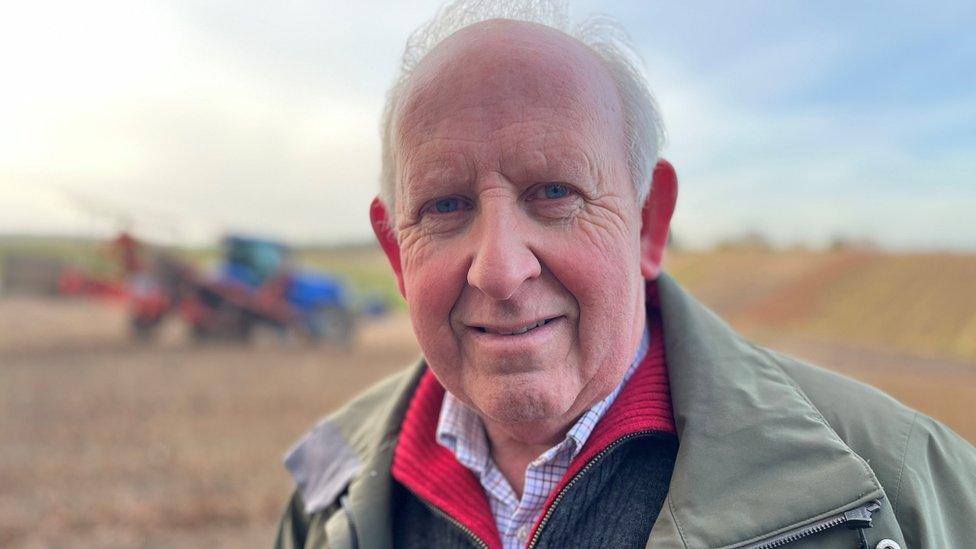
Ronald Christie's family firm has been growing seedlings for 200 years
Ronald Christie has 130 million trees growing on his nursery in Moray but fears many will have to be destroyed because of cuts to government funding.
The seedlings were being grown for new woodlands as part of the Scottish government's expanding forestry targets, which are critical for tackling climate change.
But with the budget now being slashed, Mr Christie predicts the market will dry up leaving skilled workers out of jobs.
He wants ministers to rethink cuts which he believes will damage the sector long-term.
As part of its climate change commitments, the Scottish government is meant to be increasing tree-planting to 18,000 hectares annually from this year, a target would involve about 28 million trees across an area about three times the size of Dundee.
However, it was announced in the December budget that funding was being cut by 41%, from £77.2m to £45.4m.
Ministers have admitted this is likely to mean only 9,000 hectares being planted in the year from April.
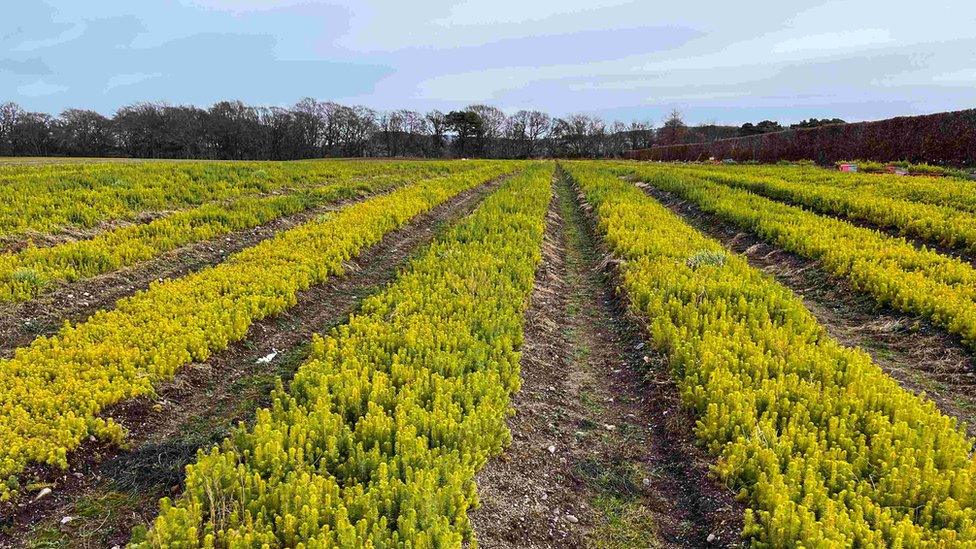
Sitka spruce are the most commonly planted trees in Scotland
Mr Christie, the owner of Christies of Fochabers, which has operated for 200 years, described the cuts as an "absolute shocker".
He said: "We've been encouraged to grow trees by the government to reach this target of 18,000 hectares.
"To grow trees takes a three-year cycle and unless we're told in the next few weeks if there is funding available, this whole lot will have to be destroyed."
He said that would amount to about 10 million tree seedings being ripped up and burnt with perhaps the same happening again next year if the funding allocation remains the same.
This includes Caledonian pine - which he said costs about £3,000 per kg for seed.
Missed targets
Scotland has been leading the way in tree-planting and has been creating more new woodland than the rest of the UK combined.
This is largely driven by having a larger proportion of land which is not suited for arable farming.
Because trees absorb carbon dioxide from the atmosphere as they grow, woodlands are a key ingredient in tackling climate change.
The ultimate aim is to increase tree cover in Scotland from 19% of the land mass to 25%.
But in recent years, Scottish ministers have been consistently missing both their tree-planting and greenhouse gas emissions targets.
The forestry sector says the latest cuts will widen the gap between the targets and the results.
In 2021, 20,000 people in the UK were employed in the forestry sector and the figure has been growing year on year.
But now the industry feels like it has been left in limbo. Having planned for expansion it has found its ambitions being severely restrained.
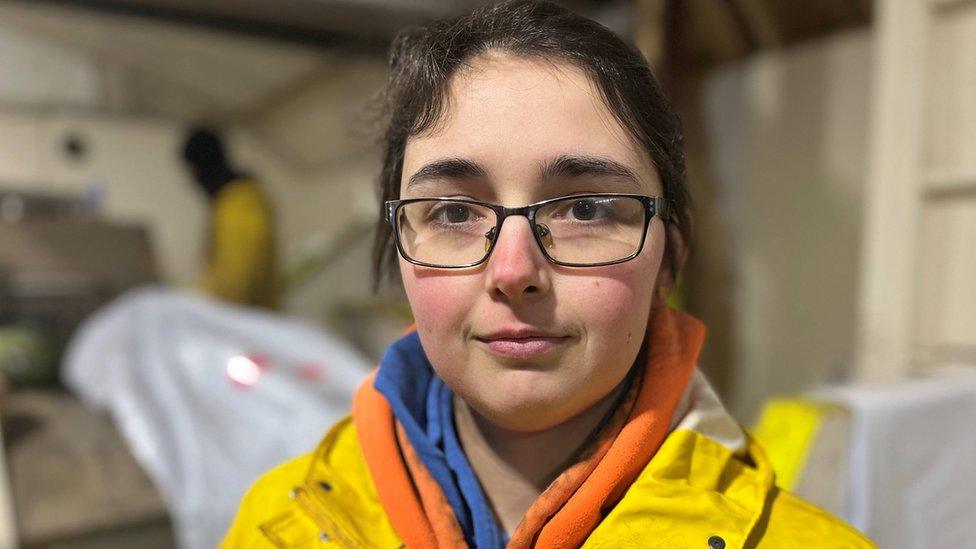
Thousands like Rhiannon Alexander are employed in the forestry sector
Christies employs dozens of people and has invested millions in equipment to expand its operation based on the Scottish government's targets.
Rhiannon Alexander is one of those who works on grading trees at the nursery.
She said: "We need the funding because we can't do our jobs without the funding and with global warming we need to do all the stuff we can do.
"It's kind of worrying because (we ask) will we still have jobs?"
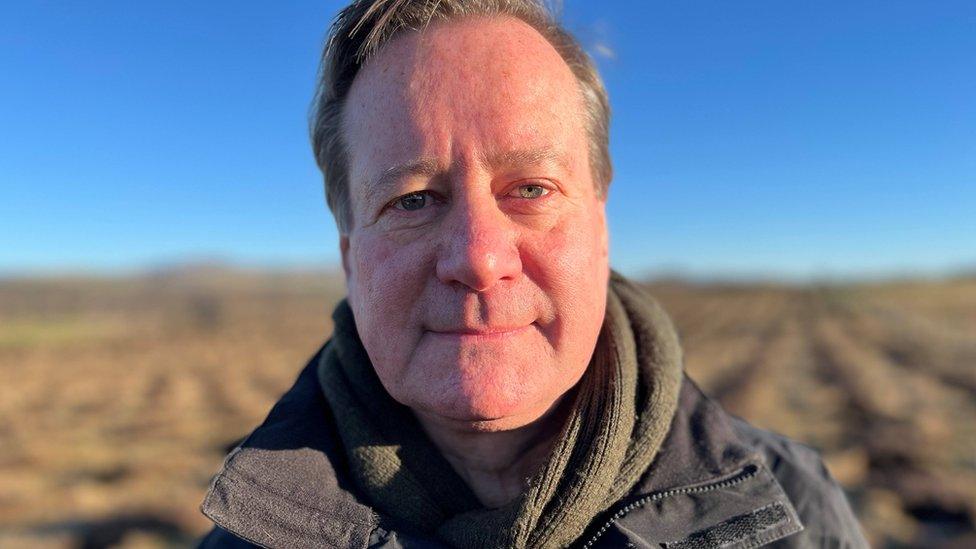
Stuart Goodall from the industry body Confor says it will take a long time to recover from the cuts
Stuart Goodall, from Confor (Confederation of Forest Industries), said the need for trees to tackle climate change had "galvanised" the sector.
He said: "Businesses had been investing millions of pounds, training people up and we were just starting to see that confidence seeping into the sector.
"Something like this is going to be a big blow and that confidence will take many years to get back."
Mr Goodall said tree-planting was the cheapest way to lock up carbon and the funding being cut is a relatively small amount compared with the overall budget.
Last year the Scottish government increased its tree-planting target to 15,000 hectares but only about 8,200 was planted.
Ministers blame the decision on cuts its block grant from the UK government but point out that Scotland is still planting more trees than the rest of the UK combined.
Net-zero secretary Mairi McAllan said: "I'm very clear that the contribution that tree planting makes to our climate targets, but equally to Scotland's economy, is absolutely vital."
Related topics
- Published24 June 2022
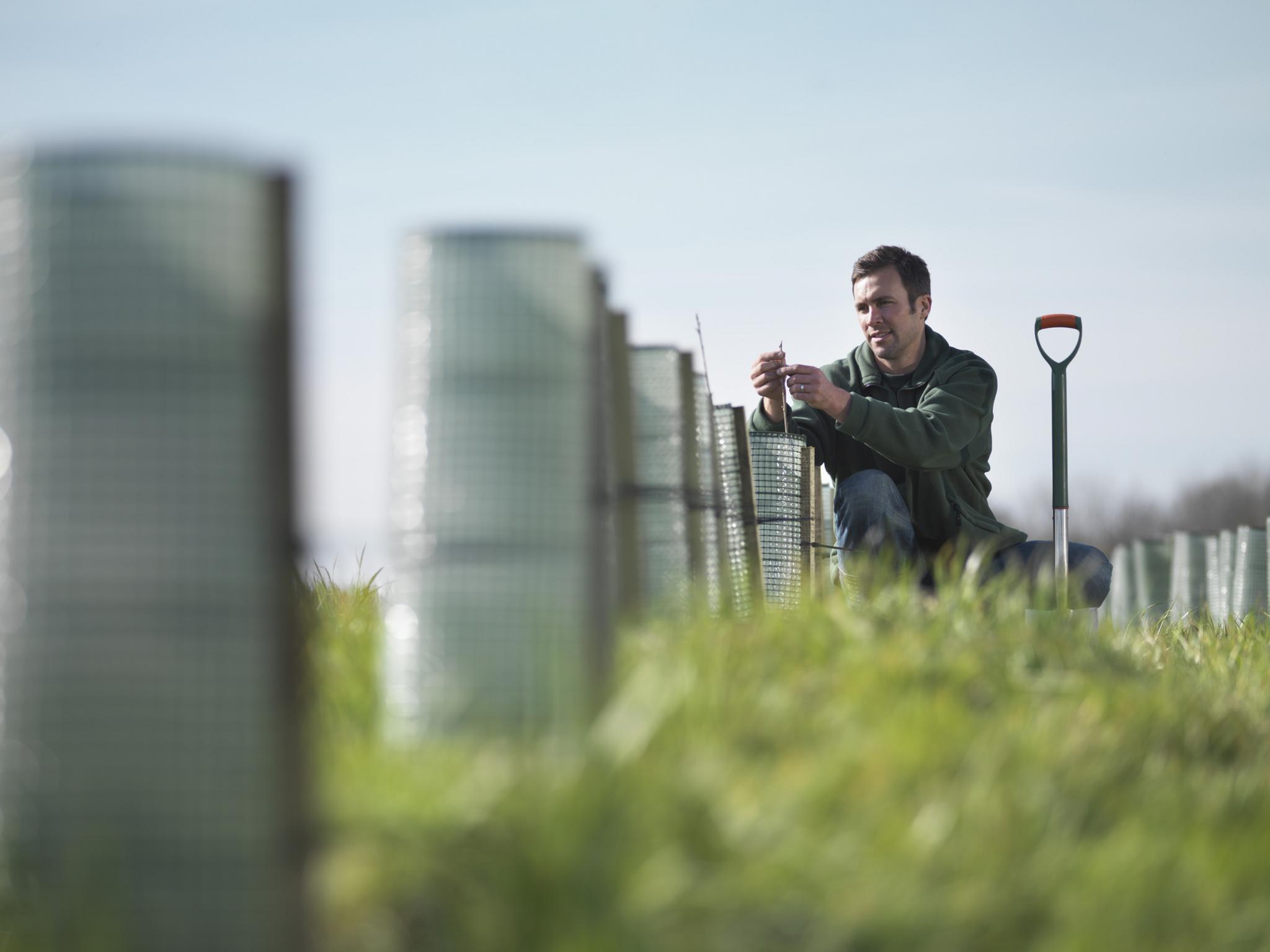
- Published15 January 2024
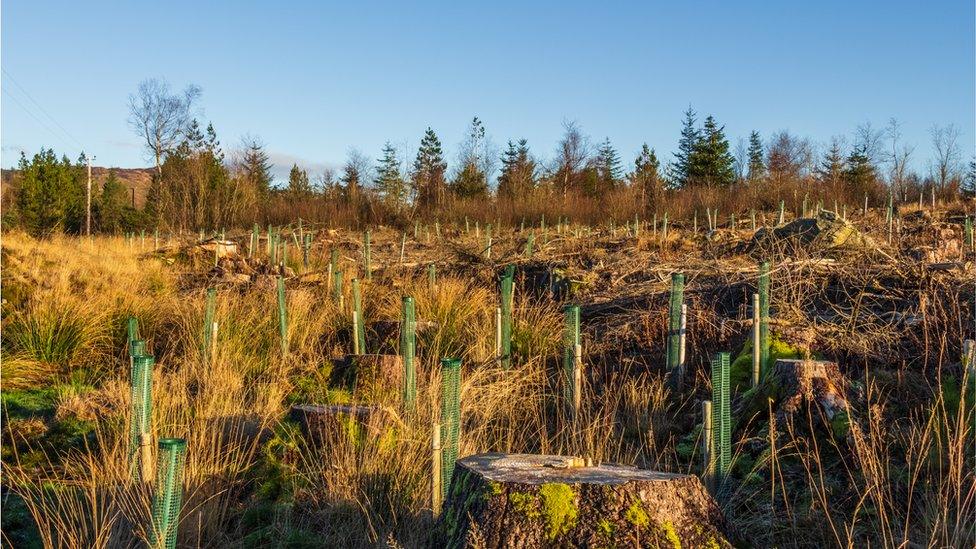
- Published1 June 2021
